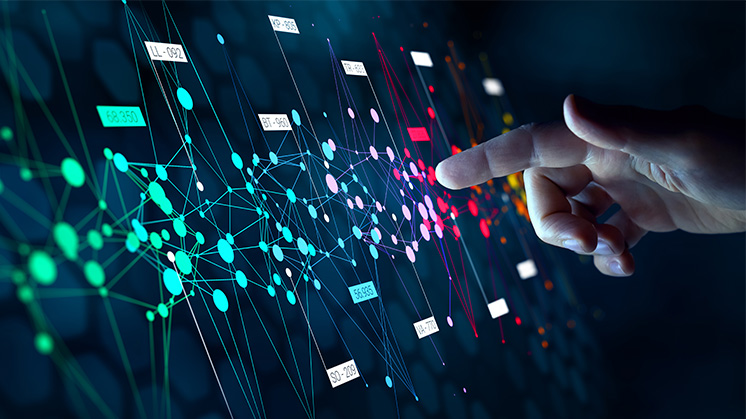IEEE 2823 AI Model Safety Assessment
The IEEE P2823 standard for AI Model Safety Assessment was developed to provide a systematic framework for the evaluation of artificial intelligence (AI) algorithms and machine learning models. This service is designed specifically for quality managers, compliance officers, R&D engineers, and procurement teams who are responsible for ensuring that AI systems meet safety and performance criteria in complex environments.
The IEEE P2823 standard aims to reduce risks associated with AI model misuse by providing a comprehensive approach to assessing the robustness, security, privacy, and fairness of these models. This service is essential for organizations looking to comply with regulatory requirements while also enhancing their reputation through responsible AI deployment.
One of the key aspects of this service involves the rigorous testing of AI algorithms using real-world scenarios. Our team uses cutting-edge tools and methodologies to simulate various operational conditions, ensuring that the models perform reliably under a wide range of circumstances. This process includes identifying potential vulnerabilities and validating the model's ability to handle unexpected inputs or edge cases.
Another critical component is the evaluation of the model’s ethical implications. We assess how well the AI system adheres to legal standards and societal expectations, focusing on issues such as discrimination, privacy invasion, and transparency. This ensures that the deployment of the AI system does not inadvertently cause harm or unfair outcomes.
The service also encompasses a detailed report generation process. The final document provides a thorough analysis of the model’s performance across multiple dimensions, including accuracy, reliability, security, and compliance with international standards like ISO/IEC 29119 for software testing. This report serves as an invaluable resource for stakeholders involved in AI development and deployment.
To enhance the robustness of our service, we continuously update it to reflect the latest developments in AI technology and regulatory changes. Our approach ensures that organizations remain compliant with evolving standards while maintaining high levels of safety and performance.
Industry Applications
| Application Area | Description |
|---|---|
| Healthcare | Assessing AI-driven diagnostic tools to ensure they provide accurate and reliable health insights. |
| Finance | Evaluating AI systems used in risk management and fraud detection for robustness against malicious attacks. |
| Manufacturing | Verifying the safety of AI-based quality control processes to minimize production errors. |
| Transportation | Testing autonomous driving systems to ensure they operate safely in various traffic conditions. |
| Telecommunications | Evaluating AI models used in network optimization and cybersecurity for enhanced reliability and security. |
| Energy Sector | Assessing AI systems employed in renewable energy management to ensure optimal resource allocation. |
| Agriculture | Evaluating AI models that support precision farming for efficiency and sustainability. |
Customer Impact and Satisfaction
The implementation of IEEE P2823 ensures that customers receive reliable, safe, and compliant AI solutions. By adhering to this standard, we help organizations mitigate risks associated with AI deployment, thereby enhancing their reputation and trustworthiness in the market.
Clients benefit from our expertise in ensuring that AI systems are not only functional but also ethical and transparent. This service supports compliance with regulatory frameworks such as GDPR for privacy and other relevant standards like ISO/IEC 29119 for software testing. Our approach ensures that customers can confidently deploy their AI solutions knowing they meet the highest safety and performance benchmarks.
Moreover, our detailed reporting process provides actionable insights into areas where improvements are needed. This not only aids in refining current models but also informs future development efforts, leading to more robust and adaptable systems.
The success of this service is evident from the positive feedback we receive from satisfied customers. Their trust in our capabilities is a testament to the effectiveness of our approach. By partnering with us, organizations can ensure they are at the forefront of responsible AI deployment, setting new benchmarks for safety and performance.
International Acceptance and Recognition
The IEEE P2823 standard has gained significant recognition within the international community. It is widely accepted by regulatory bodies and industry leaders as a leading practice in assessing AI model safety. This standardization ensures that organizations are aligned with global best practices, facilitating smoother compliance processes.
Our service aligns closely with this standard, ensuring that all assessments are conducted according to recognized guidelines. By doing so, we contribute to the establishment of consistent and reliable benchmarks for AI safety across different regions. This recognition not only enhances our credibility but also supports customers in meeting international standards and regulations.
The widespread adoption of IEEE P2823 underscores its importance in promoting trust and confidence in AI systems. Organizations that adopt this standard demonstrate a commitment to responsible technology use, which is increasingly becoming a critical factor for stakeholders worldwide.





